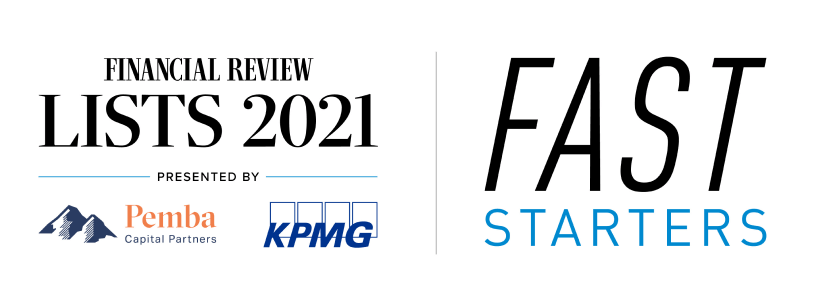The criteria to get a business loan
You’ll certainly apply for a small business loan to solve your cash flow issues and get the capital you need to operate
your business efficiently.
Although, you need to consider the minimum criteria. Most of the lenders consider the following qualifications:
-
Time in Business
In general, you are needed to be in the business for either 1 year or 6 months. For instance, Lumi accepts trading for 6
months.
-
Credit Score
Actually, it is important to consider the history of your credits. However, the minimum score is normally based on a
number of factors such as current financial trends and industry.
-
Yearly Revenue
It is important to note that most traditional lenders need you to have annual revenue of at least between $250,000 and
$50,000. Meanwhile, microlenders might provide short-term loans at even $2,500. However, before you apply for a specific
loand, make sure that the revenue threshold is exceeded by your business.
Needed Amount of Money
Generally, when you meet potential lenders, ensure that you have a certain amount of money that you would want to
borrow. In fact, ensure that this number reflects the real amount of money that you need for achieving your goals and
that you have the capability of paying the loan off.
Types of Lenders
Usually, when people think of a lender, they picture traditional types including financial organizations, credit unions, and banks but there are other kinds of business financing that can be considered for funding your business including:
-
Peer to Peer Lending
-
Merchant Cash Lending
-
Crowdfunding
-
Borrowing from family and friends
Loan Terms
Now, as you compare different options, you should consider the loan terms of each institution or the total time that the
loan will last or stay if you make necessary payments on a monthly basis. In addition, you should look for additional
conditions and terms listed under the terms of the loan. Terms of loans might vary by the type of loan and lender, from
several years to a few months.
Repayment
You are expected, in most of the cases, to pay back a loan for your business over the loan term with a monthly payment.
In fact, the amount that you will pay with each installment seems to depend on the borrowed amount, credit history,
lender, and type of loan etc. Failure in repaying loan is recognized as a default and it can result in steep
consequences for the creditworthiness of a firm.
Interest
Normally, with a traditional business loan, capital is provided by a lender to a business, and the amount borrowed by
the business is repaid with interest over the term of loan. Rates of interest fluctuated constantly depending on the
economy and they also seem to depend on the kind of loan that you need, qualifying factors, and the lender type.
Types of Small Business Loans
Actually, there are several types of lenders and loans, and understanding the differences among them can be difficult.
Now, if you are considering a specific loan and you do not know where to begin, this guide will assist you in
determining which loan is right for your small business.
-
Small business line of credit
It is a common financing option and it operates as a credit card. Money can be borrowed up to a specific amount and
interest has to be paid. As long as the credit limit is not crossed, funds can be borrowed and they can be repaid
accordingly.
It is ideal for businesses needing short-term capital to utilize a growth opportunity, offset seasonal fluctuations, and
bridge a gap.
-
Invoice Factoring (or Invoice Financing)
Generally, it is also referred to as invoice financing and accounts receivable financing. In this process, outstanding
invoices are sold to a lender in exchange for advancements on the money that are owed by your customers and clients.
Factoring is often used for improving cash flow and securing funds on different invoices.
It is ideal for all businesses with longer terms of receivable payment, typically between 60 and 30 days. It is a good
method for receiving money quickly if you want to improve cash flow.
-
Asset Based Loan
This kind of loan is created for helping businesses in securing financing on the basis of collateral such as accounts
receivable or inventory. Generally, these loans have easy qualifications and businesses get quick access to their
capital for eliminating short-term financial needs.
It is ideal for businesses that require capital for keeping typical business processes functioning and can utilize their
resources as collateral resources.
-
Small Business Term Loans
These loans are a type of financing in the short-term that is aimed at filling a specific need for helping the business
in achieving growth. For instance, if an update is required, additional employees can be hired or expansion can be
practiced, the financial gap can be bridged by a term loan for reaching there. As it is suggested by the name, this loan
type has a fixed range and it ranges from years to a few months.
It is ideal for businesses that require upfront cash for filling a financial gap for completing a certain task like
opening a new branch or recruiting seasonal staff.
-
Merchant Cash Advance
It is also referred to as cash advantage and it is funded from a specific provider on the basis of future credit card
sales of a business. The advance has to be repaid with interest on the basis of credit card sales’ percentage until it
is paid fully. As merchant cash advance is paid through your credit card receivables’ percentage, there is no specific
payment term. Instead, the ability of repaying depends on how many sales are you making.
It is ideal for all businesses depending heavily on transactions of credit card including restaurants and retail
storefronts. It does not need to make manual payments for repaying advance or have an incredible credit score.
-
SBA Loans
It can be utilized for any purpose virtually. It is a low-interest and long-term loan that is guaranteed partially by
the government, particularly the Small Business Administration. Although the SBA does not directly loan the money, the
risk is reduced by it for the lender. Sometimes SBA loans are tougher to qualify for compared to other loans. If a
business succeeds in qualifying, the approval process can take a long time for receiving funds.
It is ideal for businesses that have been operating for at least 2 years, don’t have other financing options, and have a
decent credit score.
Business loan options and practices to avoid
At present, there are several funding options and alternative lenders that can get you the necessary capital for growing
your business. Still, not every funding option is equal.
Although traditional lenders have some strict requirements, they are trusted and established entities that ultimately
require your business venture to achieve success. If your business, in many cases, qualifies for a specific traditional
loan, it is understandable to consider this funding method.
However, if your business does not qualify for it, clever financing options and alternative lenders can fund your
business but you need to be careful. Following are what you should avoid and some alternative financing options:
-
Business Credit Cards
Actually, there are several reasons why you should get a credit card. A business credit card is capable of helping you
in building business credit and it does not need collateral. But if you are not careful, the credit score can be hurt
and more debt can be accrued quickly. This option can grow your business but it can also sink it if you’re not careful.
-
Invoice Factoring (or Invoice Financing)
Similarly to a business credit card, it is an incredible solution for different businesses in
certain situations. There are several benefits of factoring. For instance, cash flow problems are mitigated by it, it
has a quick process of application, and the collections process can also be facilitated by factoring firms. But interest
fees can quickly add up and if the customer does not pay, the advance will have to be paid.
-
Merchant Cash Advance
Normally, if regular payment is received by your business through credit cards, you can be provided with quick funding
by merchant cash without collateral or monthly installments, even if you do not possess a solid credit score. But they
are quite expensive and considering another lending score can help you save money.
Small Business Loan Requirements
In spite of the business loan that you generally pursue, the requirements of getting approved and qualifying are often
similar. Following are some requirements:
-
Personal and business credit scores
In general, if your business has a history of credits, some loan types will need lenders to perform a credit check on
the firm or business. If your business has an incredible history of credits, you will have an easier time in getting
approved. In addition, borrowing money’s cost will also be lower and the chances of securing favorable terms of
repayment will rise.
However, if your business does not have a history of credits, lenders will observe the score of your personal credit and
will secure a guarantee that you will be paying the debt back with your personal assets if payment is not made by the
business.
Normally, the best method of securing a loan is building strong business credit and personal score. Many lenders will
consider both when choosing to extend the financing and terms relating to it.
-
Credit Reports
Lenders will also be looking at credit reports to determine if you have bankruptcies, missed payments, accounts, or
foreclosures. Now, if your credit score is not high as you would like, you might still be able to have a loan if your
credit report is clear of red flags.
-
Time in Business
Normally, many lenders are cautious of offering specific loan types to new businesses because they do not have an
indicator of risk. Many business loans including lines of credit and SBA loans need a business to operate for at least
two years. Meanwhile, other financing types including invoice factoring and merchant cash advances are available to new
businesses or firms as well.
-
Business Finances and Collateral
Generally, many lenders need detailed information about the business’s financial situation and they will ask for future
projections, loss and profit statements, cash flow statements etc. If your business finances are strong, you will have
an increased likelihood of being approved for a loan. Several business loans need collateral, particularly if the lender
deems the business risky. Usually, a lender will be looking for a physical asset including real estate, inventory, or
equipment.
-
Cash Flow and Annual Revenue
Actually, lenders will be looking at your cash flow and annual revenue for determining whether you will be capable of
repaying a loan in the specified time period. Now, even if you have an incredible credit score, you will not be provided
with capital if a lender does not think that you can afford the terms of repayment.
-
Loan Amount
Lastly, business lenders will be considering how much money you require and they will identify the risk. Actually, if
you possess a subpar credit score or you are a new business, you might be approved for less than what you desired. But
entering the market with a small loan is normally an incredible opportunity of proving your creditworthiness and
creating a strong relationship with the specific lender.
Normally, you do not have to worry about requesting for more than the amount that you quality for. Lenders have the
desire of working with companies. Thus, they will often offer a smaller amount of money for doing business. You need to
make reasonable expectations but you should not stress on asking for or requesting too much.
How to Apply for a Business Loan
It is true that applying for a loan can be difficult. However, it can be straightforward if you have the necessary
documents with you.
-
Business Plan
In general, many business lenders do not need your business plan’s copy. Still, it is a decent practice to have a
thorough business plan prepared. This plan should involve your plans for borrowing some money, your intent of repaying
the loan, and its use.
-
Bank and Financial Statements
Generally, a key set of documents to have is your financial statements and bank documents. Lenders have the desire of
knowing how much money is withdrawn ad deposited from the account on monthly basis and how money is being utilized.
Financial statements must have cash flow statements, loss and profit statements, and other forms that are requested.
-
Tax Returns
You will have to offer personal tax returns for pass-through entities including partnerships and sole proprietorships.
You will have to offer a return if a tax return is filed by the business.
-
Employer Identification Number
In general, your EIN is a number comprising of eight-digits that is assigned by the IRS. It is recognized as the Federal
Tax Identification Number or Employer Identification Number. An EIN is required by banks for opening a bank account for
your business.
-
Proof of Collateral
If you have to deliver collateral for securing a loan, you will have to deliver proof that you have something of enough
or sufficient value including equipment or real estate.
How to increase the odds of a small business loan approval
Although getting approved for a loan is tough, it is not impossible. Following are some steps for improving your
approval chances:
-
Improve Your Credit Score
Even though not every loan includes an extensive or thorough check on credit, many tend to do. The most likely method of
getting approved for a loan is concerned with improving your credit. You should remember that bad credit makes it
difficult to secure a loan and it also makes money more costly and expensive when you are at that point. You should
ensure that your business is registered with three credit reporting agencies including Equifax, Experian, and Dun &
Bradstreet on their websites for official establishing and tracking your credit.
Generally, if you apply for a specific amount and you are given a counteroffer, you should consider taking the offer
establishing a relationship with the respective lender. Moreover, you should be prudent with line credit expenses or
business credit card, and you should pay off debt quickly.
-
Provide a Personal Financial Summary
Prepare documentation of your financials before speaking with the lender. These financials include investments,
vehicles, and real estate. In addition, ensure to provide information regarding your liabilities such as credit card
debt, loans, and mortgages. When it comes to your liabilities, be upfront.
-
Know Your Small Business Loan Options
It takes research and time to be approved for a loan for your small business. Before pursuing a loan, ensure to have a
better comprehension of your business, type of financing, and your industry.
If you reached this stage you should have all the information required to apply for a business loan. Good luck with your
search.







